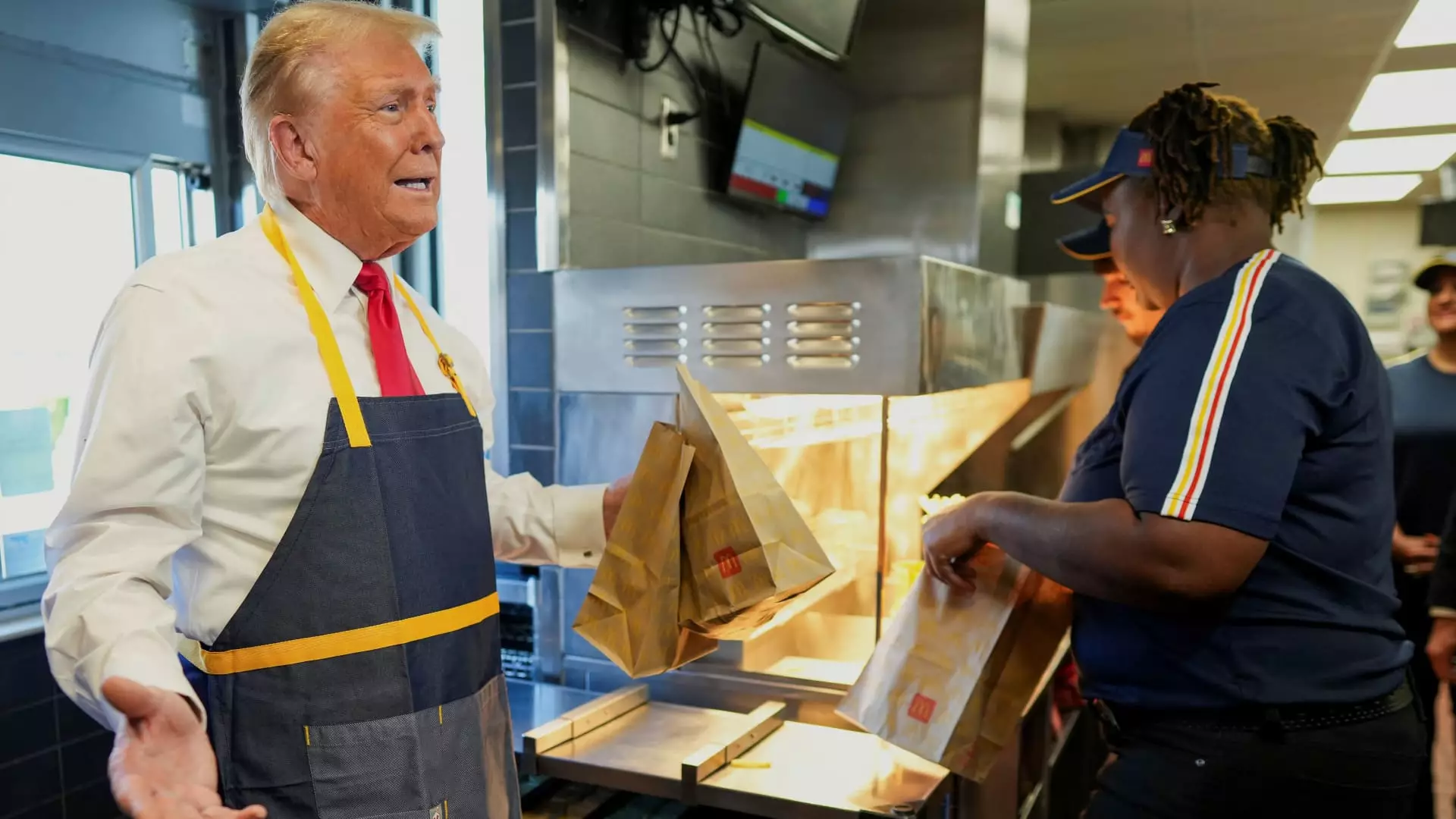In an era where politics increasingly permeates every aspect of society, McDonald’s has found itself at the center of political discourse, particularly following a visit by former President Donald Trump to one of its Pennsylvania locations. Despite this high-profile event, the fast-food giant is making concerted efforts to maintain a neutral stance in the electoral arena, emphasizing that it neither endorses nor opposes any political candidates. The company’s internal message, as reported by CNBC, reiterates its commitment to staying apolitical, asserting that McDonald’s has no intention of entering political battles. Such neutrality is critical for a brand that seeks to resonate with a broad spectrum of consumers across the political spectrum.
The Symbolism of Fast Food in Political Discourse
Trump’s visit was not just about burgers; it also served as a platform for him to launch critiques aimed at Vice President Kamala Harris. During his brief stint working at the drive-thru, he made headlines by questioning Harris’s claims about her past employment at McDonald’s, an allegation that has not been substantiated. This instance highlights a fascinating intersection between fast food and political rhetoric, where a seemingly innocuous meal becomes fodder for jabs and claims. The fact that Trump felt compelled to challenge Harris’s authenticity in this manner points to the broader narrative in American politics that thrives on questioning opponents’ credibility, often using relatable elements like job experiences to connect with voters.
McDonald’s position is emblematic of a larger trend among corporations grappling with their role in political conversations. In recent years, many companies have opted to reassess their engagement with social justice and political issues. McDonald’s previous support for movements like Black Lives Matter in 2020 indicates a willingness to stand up for social issues; however, the backlash from various customer demographics has led to a more cautious approach. The company recognizes that while it has a broad customer base, taking sides in political matters can alienate segments of its clientele. This balancing act underscores a critical questioning of whether corporations should engage in political discourse or remain neutral entities focused solely on their product offerings.
Interestingly, public opinion appears to be shifting. Recent data suggests that fewer Americans believe businesses should engage in political rhetoric or take public stances on social issues—dropping from 48% in 2022 to just 38% this year. This shift could pressure brands, including McDonald’s, to reconsider how they approach social and political issues, ensuring that their actions align with consumer preferences. As businesses navigate this evolving landscape, it highlights a growing sentiment among the public to prioritize the quality and availability of products over corporate ethics or political involvement.
Further complicating matters for McDonald’s is the ongoing debate surrounding its pricing strategies, especially amid rising inflation. A viral controversy earlier this year spotlighted the cost of a Big Mac meal, with claims from concerned consumers about skyrocketing prices. Republicans seized upon this as an opportunity to link McDonald’s increasing costs to the economic policies of the Biden administration, framing it as a reflection of broader economic distress. The company’s response, including an open letter from U.S. President Joe Erlinger, aimed to clarify the reasons behind its pricing—effectively trying to distance itself from political blame while addressing the criticisms head-on.
As McDonald’s continues to navigate the turbulent waters of political sentiment and consumer expectations, it remains a case study in brand strategy. Balancing neutrality while maintaining relevance in political conversations proves challenging, but it also highlights the complexities of corporate America in the modern age. The fast-food chain’s experience reflects not only its unique position in the marketplace but also the broader dialogue on consumer expectations versus corporate responsibilities. In a world where every decision can spark controversy, McDonald’s ambitious attempt to remain a beloved staple for all Americans raises essential questions about the interplay between food, politics, and consumer culture.


Leave a Reply